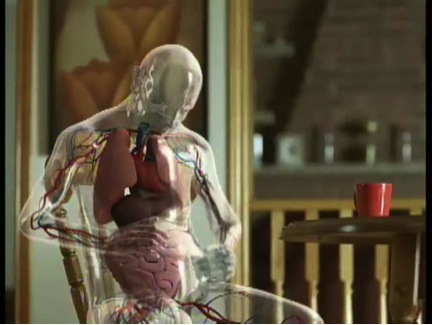|
Top Stories in Medicine in the Last Century
Description: Dr. Sanjiv Chopra will cover the greatest discoveries and scientific advances in the last 100 years. All scientific breakthroughs come in fits and starts. The stories behind the discovery of drugs like penicillin and statins; of vaccines for polio and Hepatitis B; the control of HIV, the greatest of all plagues, with HAART therapy; the cure of diseases such as Hepatitis C; the history of how the birth control pill came about; and advances in cardiology such as the development of the pacemaker for complete heart block have not only changed medicine forever but make for fascinating tales that combine serendipity with brilliant science.
(more…)
Sleep: A mystery at the crossroads of neuroscience (Part 1)
By Deepak Chopra, M.D., FACP, P. Murali Doraiswamy, MBBS, FRCP, Professor of Psychiatry, Duke University Medical Center, Durham, North Carolina
Sleep crops up in unexpected places medically, as in the recent finding that for people suffering from bouts of depression, irregular sleep is often the first sign of an attack, and conversely, getting a good night’s sleep can help prevent the onset of depression. But the importance of sleep has become more global in recent years, involving it in obesity, for example, where bad sleep throws off the hormonal balance that tells the body when it’s hungry. (more…)
The Best New Year’s Resolution: Be Good To Your Genes
By Deepak Chopra, MD and Rudolph Tanzi, Ph.D.

Image: hiddenlighthouse
The New Year occasions all kinds of resolutions (which only 8% of people keep, according to Forbes magazine), but almost no one, I imagine, resolves to improve the function of their genes. The fact that this is even possible sounds mystifying, since the specific genes you’re born with remain the same throughout your lifetime (except in certain cells as we age, e.g. in tumors). But now geneticists increasingly appreciate that the output of our genes varies considerably, not just from year to year but from minute to minute. The genetic read-out of two identical twins is quite similar at birth, but looks very different by age seventy. This understanding, still in its infancy, belongs to a growing field known as epigenetics. In the coming years research projects are set to reveal just how deeply a person can affect the activity of their individual genome – the findings so far are very promising. (more…)
Health Tip: Get checked for Colon Cancer!
By Sanjiv Chopra, M.D., MACP, Professor of Medicine, Harvard Medical School and Frank J. Domino, M.D., Professor of Family Medicine, University of Massachusetts Medical School
Colon cancer is the 3rd most common cancer in men and women in the US, and the 3rd in causing cancer death. This last statistic is sad, as colon cancer screening works; it prevents death from cancer, and is the most effective of all screening tests. Colon cancer screening should be initiated at age 50 years in both men and women.
Colonoscopy is the most effective method to address colon cancer. The bowel is prepared by taking some liquid and laxative to cleanse the colon. The patient is given gentle sedation administered intravenously, a fiber optic scope is inserted and the entire colon (large intestine) is examined thoroughly. It is usually performed by an experienced gastroenterologist. Another form of screening, called the “FIT” test, has the patient collect a small amount of stool. If positive, it could signal bleeding from a polyp or a cancer, and leads to a colonoscopy.


